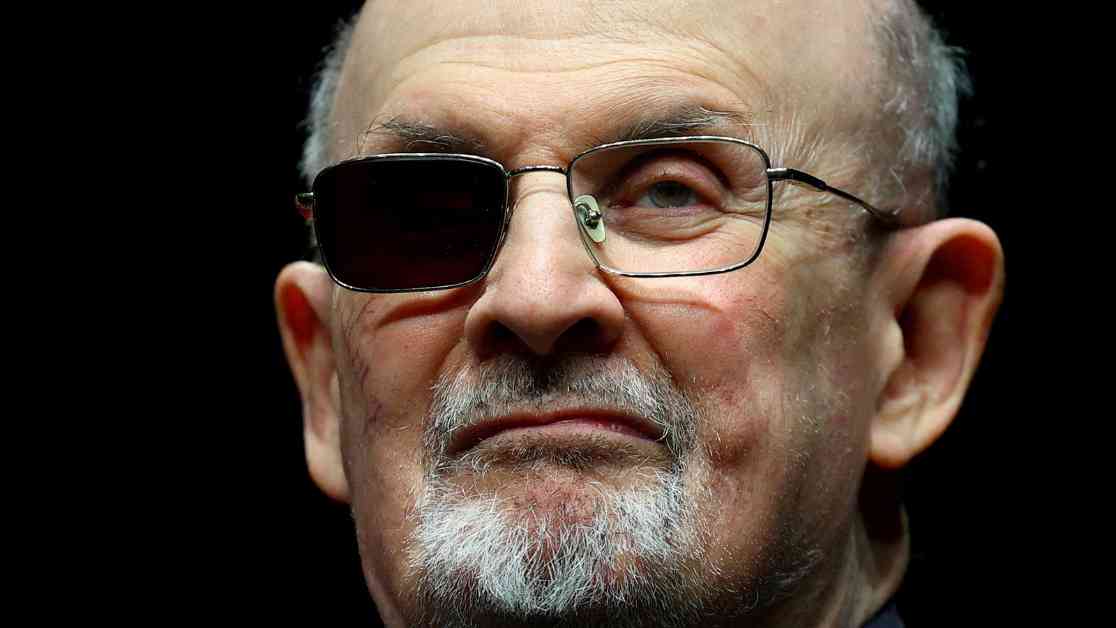Renowned Author Salman Rushdie Survives Brutal Attack in New York
In a shocking turn of events in the literary world, renowned author Sir Salman Rushdie was viciously attacked in New York during a public appearance in 2022. The 77-year-old British-American writer, known for his controversial works and tumultuous history with death threats, found himself in a life-threatening situation as a 27-year-old assailant, Hadi Matar, attempted to take his life.
The incident unfolded at the Chautauqua Institution, where Sir Salman was scheduled to give a speech. Matar, without warning, stormed onto the stage and launched a brutal assault on the unsuspecting author. Stabbing him multiple times, Matar inflicted severe injuries on Sir Salman, leaving him blind in one eye, with a severely damaged hand, and months of arduous recovery ahead.
Witnesses present at the event recounted the harrowing scene, describing the chaos and confusion that ensued as the attack unfolded. Sir Salman, caught off guard by the sudden violence, found himself at the mercy of his attacker, whose motives remained unclear. The audience, stunned by the unfolding drama, could only watch in horror as the author fought for his life against the relentless onslaught.
The Trial and Verdict: Justice Served or Questions Unanswered?
Following the horrific attack, the legal system swiftly moved to bring the perpetrator to justice. In a trial that gripped the nation, Hadi Matar faced charges of attempted murder and assault for his heinous actions against Sir Salman Rushdie and another individual present on stage, Henry Reese. The jury, after less than two hours of deliberation, found Matar guilty on all counts, delivering a swift and resounding verdict that sent shockwaves through the community.
Matar, stoic in the face of his conviction, offered a cryptic statement as he was escorted out of the courtroom, muttering “free Palestine.” His motives and intentions remained shrouded in mystery, leaving many to speculate on the underlying reasons behind his violent attack. Prosecutors painted a grim picture of an unprovoked assault, highlighting the brutality and targeted nature of the incident, while the defense sought to downplay Matar’s culpability, citing a lack of concrete evidence to support the charges.
As Sir Salman Rushdie recounted the harrowing ordeal during the trial, detailing the moment he realized his life was in danger, the courtroom fell silent. His vivid descriptions of the attack, the pain, and the fear he experienced resonated with all those present, offering a chilling glimpse into the horrors of that fateful day. The emotional toll of the trial, combined with the physical scars he bore, served as a stark reminder of the fragility of life and the enduring impact of senseless violence.
The Aftermath and Pending Sentencing: A Story Far From Over
As the dust settled on the trial, and justice was served, the legal system prepared to address the repercussions of Matar’s actions. With a sentencing date set for April 23, the convicted assailant faced the prospect of up to 25 years behind bars, a stark reminder of the gravity of his crimes. Questions lingered about Matar’s motivations, his ties to extremist groups, and the broader implications of his heinous acts on the community at large.
The specter of terrorism loomed large over the case, with federal prosecutors pursuing additional charges against Matar for his alleged links to Hezbollah, a designated terrorist organization. The complexities of the case, from the personal vendetta against Sir Salman Rushdie to the geopolitical ramifications of Matar’s affiliations, painted a multifaceted portrait of a crime that transcended individual motives.
As the world awaited the final chapter in this gripping saga, one thing remained certain: the resilience and courage of Sir Salman Rushdie in the face of unspeakable adversity. His unwavering commitment to his craft, his indomitable spirit, and his unyielding pursuit of truth stood as a testament to the enduring power of literature in a world plagued by darkness.
In a rare moment of vulnerability, Sir Salman reflected on the attack, the pain, and the fear that gripped him in those fleeting moments of terror. His words, a poignant reminder of the fragility of life and the enduring legacy of survival, resonated with readers around the world. As the sun set on the trial, and justice prevailed, one man’s story of courage, resilience, and redemption stood as a beacon of hope in a world plagued by senseless violence and unrelenting darkness.













